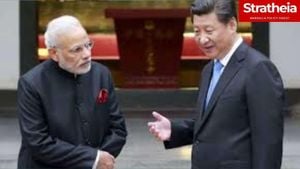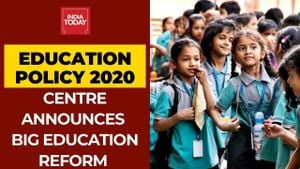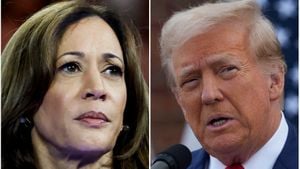With the 2024 elections right around the corner, all eyes are on the Supreme Court as it grapples with pressing election-related cases. Recent decisions by the court have sparked significant debates and set the stage for how voters will navigate the upcoming elections.
Among the most notable cases making headlines is Cornel West's appeal to the Supreme Court. On Thursday, Justice Samuel Alito denied West's emergency request, which sought to instruct Pennsylvania polling officials to inform voters they could write his name on their ballots. This request came just days before the election, as West, who is running as an independent candidate, faced difficulties getting his name on the official ballot.
With over 1.5 million voters already having cast their ballots, West’s bid became increasingly urgent. He argued for heightened visibility as a write-in candidate, hoping to secure votes even without his name listed on the ballot. Despite the urgency of his appeal, Alito’s brief, one-sentence denial reflected the court's typical stance on election timing—often avoiding any changes too close to Election Day.
This isn't the first time the high court has taken on contentious election issues. Just this week, the Supreme Court dismissed Robert F. Kennedy Jr.’s attempts to remove his name from ballots across several key battleground states, including Michigan and Wisconsin. Kennedy had claimed his presence could confuse voters who might otherwise support former President Donald Trump, creating competitive dynamics heading toward the election.
Adding to the legal drama, the Supreme Court has also ruled on Virginia's controversial initiative to purge its voter rolls of suspected noncitizens. This program has seen approximately 1,600 individuals reassessed for their eligibility based on their identification claims with the state’s Department of Motor Vehicles. Virginia's Governor Glenn Youngkin hailed the ruling as a significant victory for election integrity, stating, "Clean voter rolls are fundamental for fair elections."
Yet, the move has raised eyebrows. Critics, including the Justice Department, have warned it might disenfranchise eligible voters. They argued such aggressive measures could lead to wrongful removals, bogging down the election process just as it gears up.
Another contentious matter relates to how Pennsylvania's election practices have come under scrutiny. The state’s Supreme Court recently ruled provisional ballots must be counted, even if associated mail-in ballots were rejected due to minor errors. The Republican National Committee quickly petitioned the Supreme Court for relief, contending this ruling could undermine electoral consistency by allowing ballots to be counted against the legislature's wishes.
Maryland's appeal to uphold provisional ballot counting has added another layer of complexity. The Supreme Court has yet to make significant moves on this matter, but the potential influence on Senate control and the presidency hangs heavily over the discussions, with every vote counting more than ever.
Recent legal skirmishes represent just the tip of the iceberg; they explore the broader tensions at play as America stands on the brink of yet another consequential election. Challenges and changes emerge from across various states concerning ballot access and counting nuances. Many localities are caught up managing the balance of ensuring every eligible vote counts without risking fraud or confusion.
Another case to note involves Utah’s Phil Lyman, who is appealing to the high court over the results of his gubernatorial primary challenge. Lyman, having lost to Governor Spencer Cox, argues against the legitimacy of the results and insists he should be considered for the general election ballot. This portrays the wider struggle many candidates face as they navigate intra-party politics and state regulations.
With Nov. 5 fast approaching, the Supreme Court is poised to redefine electoral procedures and candidate access. The outcomes of these cases could potentially transform not only the current elections but also future legal landscapes surrounding American electoral practices.
Ahead of significant election shifts, the nation holds its breath, waiting to see how these judicial decisions will alter the electoral process and influence the decisions of voters at the polls.



